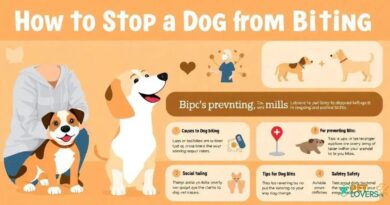What is innovation in dog nutrition
Understanding Innovation in Dog Nutrition
Innovation in dog nutrition refers to the continuous improvement and development of dietary options for dogs that enhance their health, well-being, and overall quality of life. This concept encompasses a wide range of advancements, from new ingredients and formulations to novel feeding practices that cater to the evolving needs of our canine companions. As pet owners become increasingly aware of the importance of nutrition, the demand for innovative solutions in dog food has surged, leading to a dynamic market filled with exciting possibilities.
Trends Shaping Dog Nutrition Innovation
Several trends are currently shaping the landscape of dog nutrition innovation. One prominent trend is the shift towards natural and organic ingredients, as pet owners seek healthier options for their dogs. This movement is accompanied by a growing interest in functional ingredients that provide specific health benefits, such as probiotics for digestive health or omega fatty acids for a shiny coat. Additionally, the rise of grain-free diets and alternative protein sources, such as insect protein, reflects the changing preferences of pet owners and their desire for sustainable options.
The Role of Technology in Dog Nutrition
Technology plays a crucial role in driving innovation in dog nutrition. Advances in food processing and preservation techniques have allowed manufacturers to create high-quality, shelf-stable products that retain their nutritional value. Moreover, the use of data analytics and artificial intelligence enables companies to better understand consumer preferences and tailor their offerings accordingly. This technological integration not only enhances product development but also improves the overall transparency and traceability of ingredients used in dog food.
Personalized Nutrition for Dogs
Personalization is another key aspect of innovation in dog nutrition. Just as humans benefit from tailored diets, dogs can also thrive on customized nutrition plans that address their unique health needs, activity levels, and life stages. Companies are increasingly offering personalized meal plans based on individual dog profiles, which can include factors such as breed, age, weight, and health conditions. This approach not only ensures that dogs receive the right nutrients but also fosters a deeper bond between pet owners and their furry friends.
Functional Foods and Supplements
The emergence of functional foods and supplements is revolutionizing dog nutrition. These products are designed to provide specific health benefits beyond basic nutrition. For instance, some dog foods are fortified with vitamins, minerals, and antioxidants to support immune function, while others contain joint-supporting ingredients like glucosamine and chondroitin. The growing awareness of the importance of preventive health care for pets has led to an increased demand for these specialized products, further driving innovation in the industry.
Ethical and Sustainable Practices
As consumers become more environmentally conscious, ethical and sustainable practices in dog nutrition are gaining traction. Many pet food companies are now prioritizing sustainability by sourcing ingredients responsibly, reducing waste, and implementing eco-friendly packaging solutions. Innovations such as plant-based diets and insect protein not only offer nutritional benefits but also contribute to a lower environmental impact. This shift towards sustainability reflects a broader trend in consumer behavior, where pet owners seek to align their values with their purchasing decisions.
Regulatory Changes and Their Impact
Regulatory changes also play a significant role in shaping innovation in dog nutrition. As governments and organizations establish new guidelines and standards for pet food safety and quality, manufacturers must adapt their practices to comply with these regulations. This often leads to the development of new formulations and production methods that prioritize the health and safety of pets. Staying ahead of regulatory changes is essential for companies looking to innovate and maintain consumer trust in their products.
The Importance of Research and Development
Research and development (R&D) are at the heart of innovation in dog nutrition. Companies invest heavily in R&D to explore new ingredients, formulations, and feeding strategies that can improve the health and well-being of dogs. Collaborations with veterinary nutritionists, animal behaviorists, and other experts help ensure that new products are based on sound scientific principles. This commitment to R&D not only drives innovation but also reinforces the credibility of brands in the competitive pet food market.
Consumer Education and Awareness
Consumer education and awareness are vital components of innovation in dog nutrition. As pet owners become more informed about the nutritional needs of their dogs, they are better equipped to make choices that benefit their pets’ health. Brands that prioritize transparency and provide educational resources about their products are more likely to build trust and loyalty among consumers. This emphasis on education not only empowers pet owners but also fosters a culture of responsible pet ownership.
The Future of Dog Nutrition Innovation
Looking ahead, the future of dog nutrition innovation appears promising. With ongoing advancements in science and technology, coupled with a growing understanding of canine health, we can expect to see even more exciting developments in the industry. From novel ingredients to personalized nutrition solutions, the possibilities are endless. As pet owners continue to prioritize the health and happiness of their dogs, innovation in dog nutrition will remain a dynamic and essential aspect of the pet care market.




